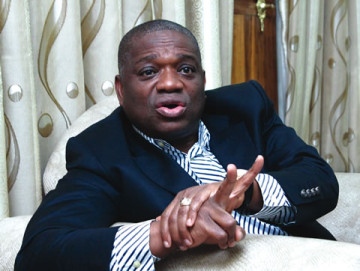The Economic and Financial Crimes Commission has today been given the go ahead by the Supreme Court to prosecute the former Governor of Abia State, Dr. Orji Uzor Kalu on a 107-count corruption charge.
The charge accuses the ex-Governor of involvement in money laundering and illegal diversion of public funds to the tune of N5.6billion.
Kalu was alleged to have perpetuated the fraud while he was governor of Abia State between 1999 and 2007. Though the anti-graft agency docked him before the Abuja Division of the Federal High Court on July 27, 2007, he, for the past eight years, through various interlocutory applications, frustrated moves by the prosecution to open its case against him.
Dr. Kalu firstly challenged the competence of the charge against him, as well as the jurisdiction of the High Court to hear and determine the case this was of course a tactic to delay proceedings against him.
The appellate court however upheld the competence of the charge, adding that the high court was constitutionally empowered to exercise jurisdiction on the trial.
Kalu doggedly approached the Supreme Court, praying the court to set aside the judgements of the lower courts.
Orji Kalu before a five-man panel of the Supreme Court, headed by the Chief Justice of Nigeria, CJN, Justice Mahmud Mohammed, prayed for a dismissal of the criminal charge against him. He contended that the EFCC failed to establish a prima-facie case linking him to the ingredients of the offence contained in the charge.
He claimed that the evidence produced was insufficient for him to be charged with and that he wasn’t the direct party who committed the crime. The Supreme court, in a unanimous judgment on Friday, dismissed the appeal, even as it ordered the appellant to go and face his trial before the high court.
Upholding the Court of Appeal verdict, Justice Suleiman Galadima who delivered the lead verdict, said the apex court was satisfied that the former governor had a case to answer pertaining to allegations that were levelled against him by the EFCC. The court also ordered for the case to begin afresh at the Federal High court, but for the matter to be accelerated so a swift resolution can be reached.

